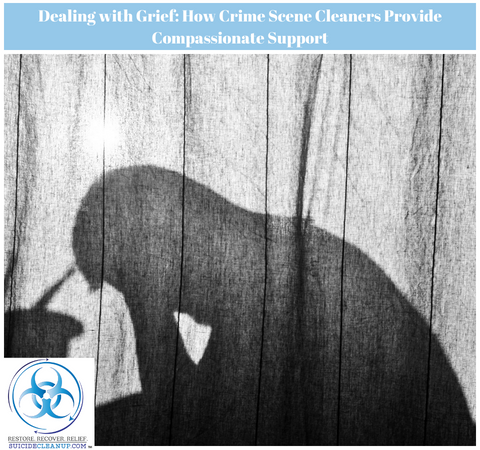
How Common Are Suicidal Gun Deaths?
June 1, 2021
What Happens to the Body After a Suicide
July 20, 2021No one likes to imagine a tragedy. Still, there are times in one’s life when we must make difficult — but crucial — choices regarding our savings, estate and family. As a suicide clean up company, we aim to relieve you some of the stress that inevitably comes during the aftermath of a tragedy, and have resources like these available for that reason.
We’re providing this resource to help families who have been affected by a tragedy. In the emotional aftermath flurry of a tragedy, we’re asked common questions like “What’s the difference between an executor and a trustee?” and asked about what can be done with wills and estates.
We’re not estate attorneys, we just strive to provide informative resources on similar topics. If you need further help writing a will, selecting an executor, or executing a will, you should contact an estate lawyer in your state.
Now, let’s cover common vocabulary regarding the topic.
Important Definitions to Know
What is an estate?
Per Law.com, estate means all the possessions of one who has died and are subject to probate / distribution to heirs and beneficiaries. Sometimes a testator (the deceased) leaves a last will and testament — usually called a will — which describes what is to be done with his or her estate. Even if there is no will, the entire process of distributing the assets must still go through probate court.
What Does The Probate of an Estate Mean?
Probate refers to the legal process of distributing assets and paying the deceased debts. Every state has slightly different laws regarding the process, but they’re all based on the notion of paying debts first and distributing remaining assets fairly to the testator’s family. Granting a probate is the final step of the process, issued by the probate court. Generally, if there’s no will, then a deceased person’s assets are divided among children and spouse.
The state can absorb the assets through probate court if a decedent had no family and no will! There’s hardly any reason not to have a will, it’s even possible to leave assets to a friend or charity so long as it’s properly documented with a witness. Having a will is incredibly helpful and protects you and your family’s assets.

To help your closest family and friends avoid later headaches, hire an estate lawyer to draft a will.
What is the Executor of Estate Supposed to Do?
Executor(s) (or feminine executrix, plural executrices) is the entity charged with “executing” the will. Their role is to primarily file for probate, pay estate debts, and distribute the assets. This person is usually a family member, a trusted friend or an attorney. Executorship is a serious responsibility that requires excellent bookkeeping and communication skills. Unfortunately, executorship is power over an estate and its assets, and therefore fraught with temptation. Problems with the executor of estate are common.
A word from the wise: probate courts study a testator’s assets closely, and any theft from an estate will come to light! Executors are also watched closely by the heirs of an estate, so they should be mindful of their actions.
Is There a Difference Between an Executor and a Trustee?
Yes, there is a difference between executors and trustees. As mentioned, executors execute a will, but trustees manage the estates placed in a trust.
Trusts are different from wills. On a basic level, you should know that a trustee is a person tasked with managing an estate placed in trust for many years, even decades! It can be a life-long assignment for attorneys or family members in high-wealth families. Trustees are expected to manage investments in the stock market, maintain real estate or sell it, pay the estate’s ongoing bills associated with multiple properties and so on.
Executors, on the other hand, might fully execute a will within a year or two.
Common Estate Debts
Funeral costs, credit card debt, property taxes, and, unfortunately, student debt, are all standard debts associated with probate. Sometimes a home needs to be professionally maintained during probate — like a gardener for instance. Those bills can be paid by the estate or by the homeowner’s insurance.
And that’s where the team here at SuicideCleanup.com can help.
The Estate or Homeowner’s Insurance Can Pay for Professional Cleaning After a Death
Grief is never easy. It can be especially traumatic when family members are asked to clean a loved one’s home after a suicide or accidental shooting death. That’s why many executors and trustees choose a professional blood cleanup crew like ours. Not only can we provide the estate with a beautifully, professionally cleaned home ready for sale or move-in, but we can also prevent emotional trauma among family members.
Contact us today to learn more about suicide cleanup and blood cleanup services that can be paid for by an estate or by homeowner’s insurance.





